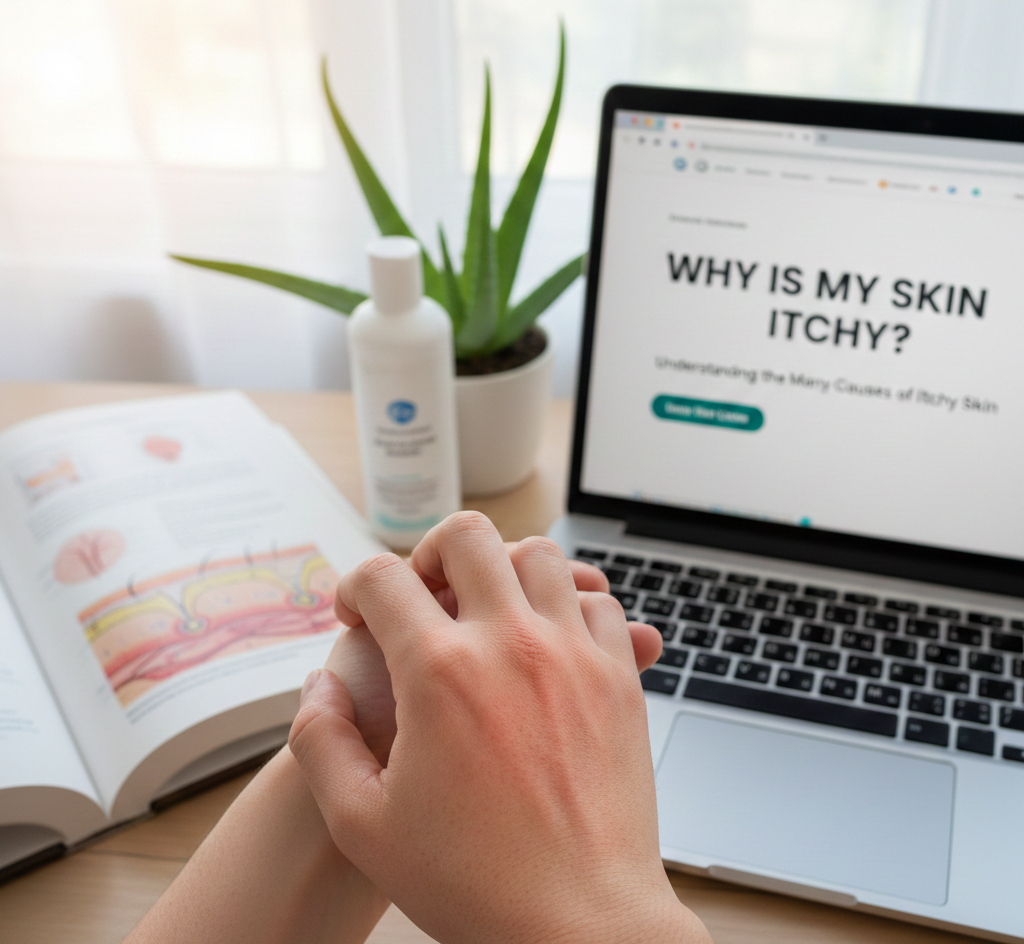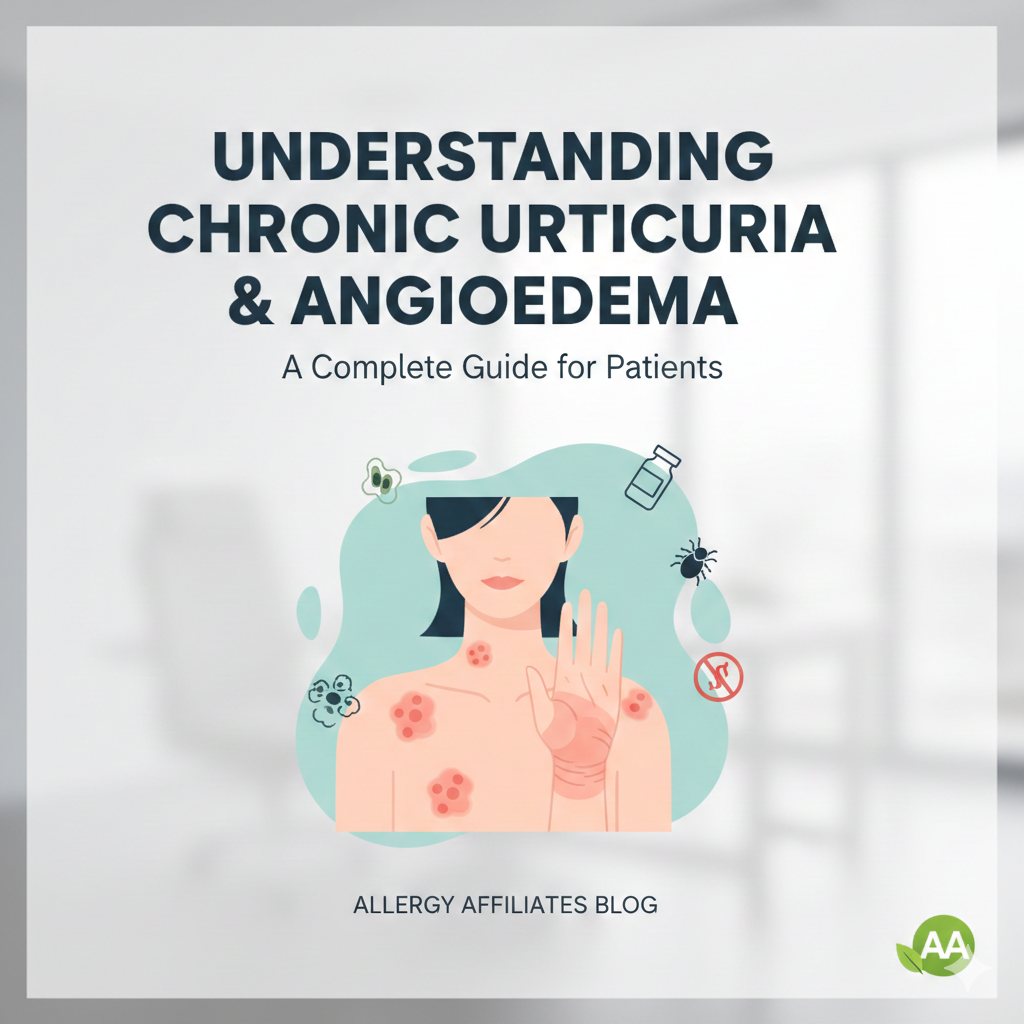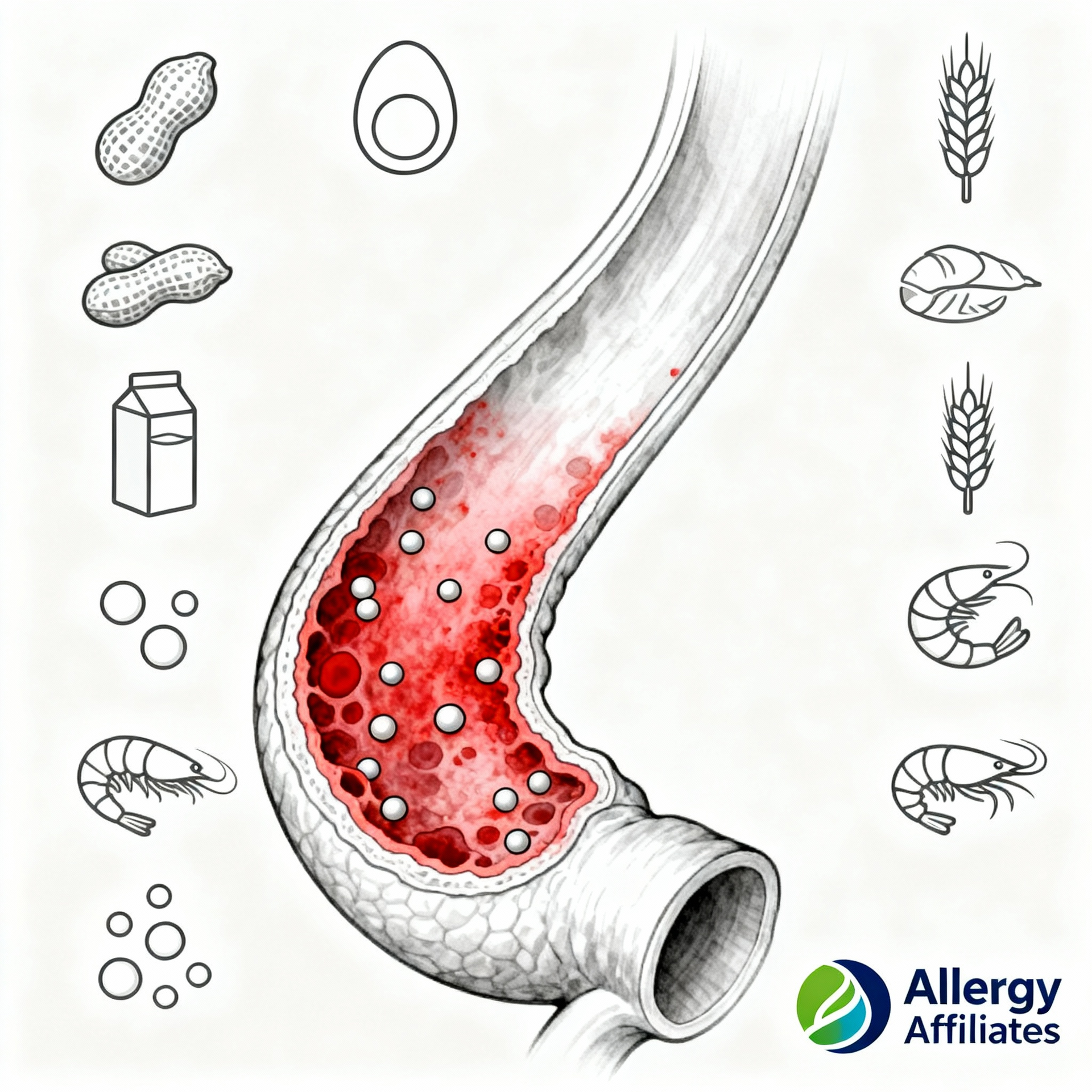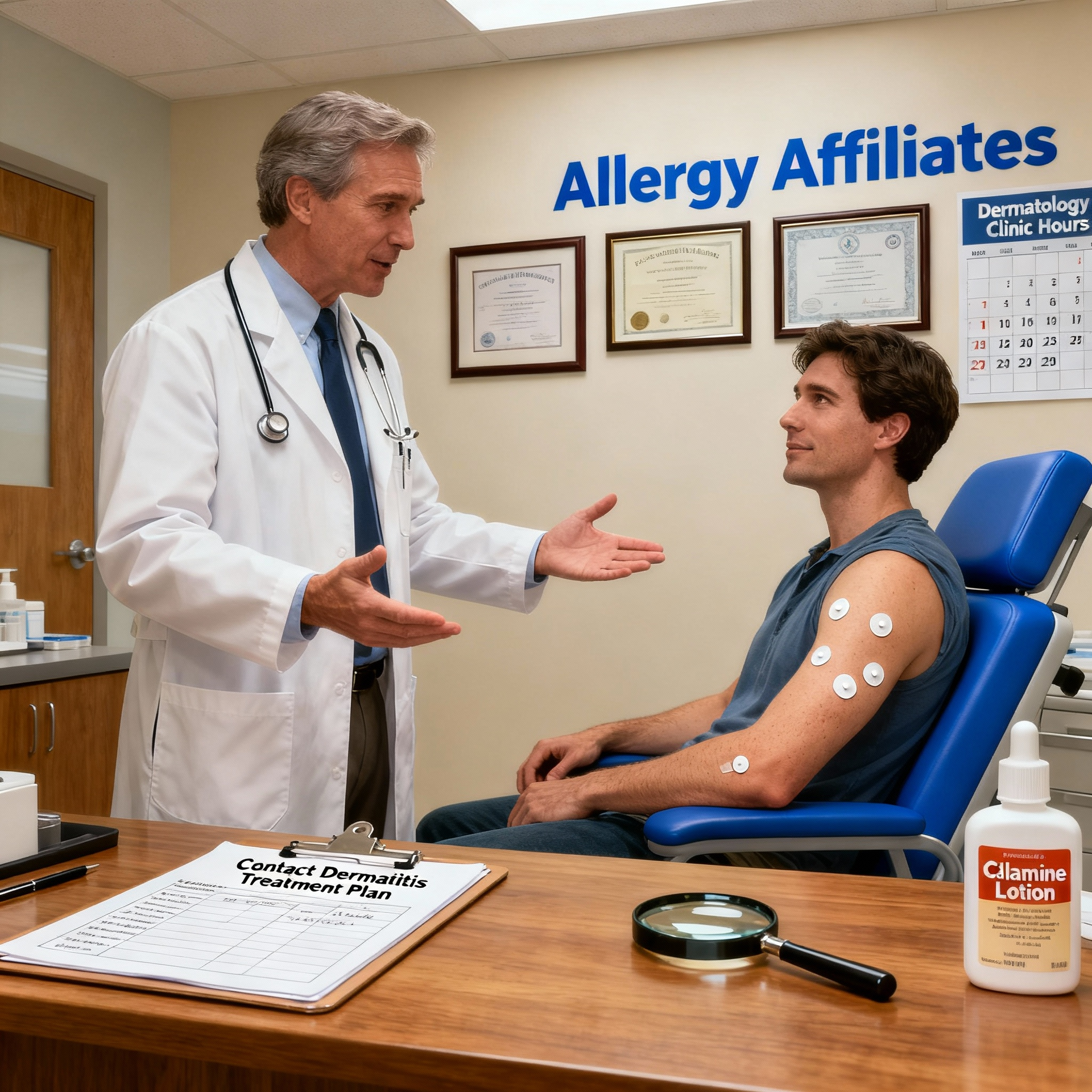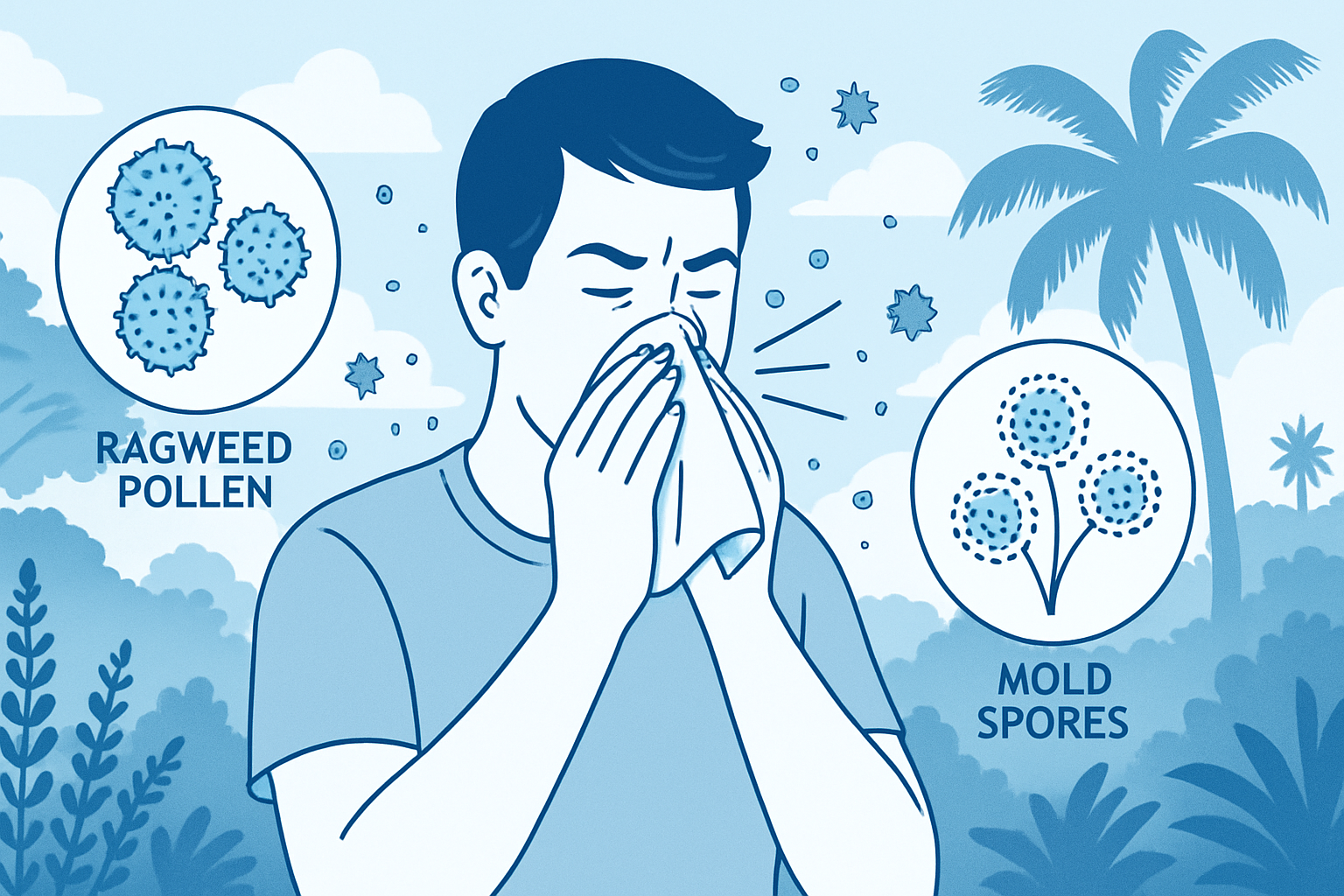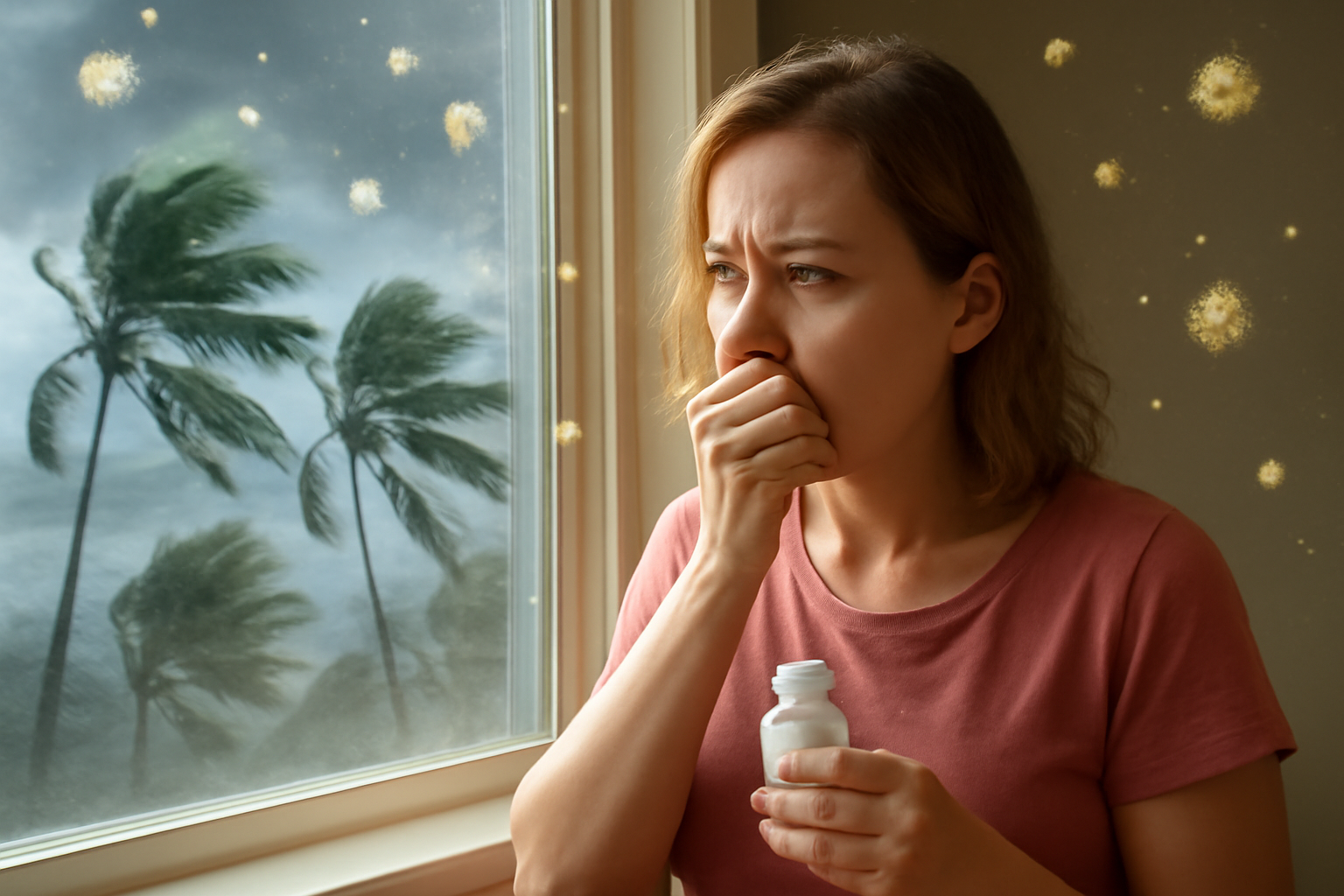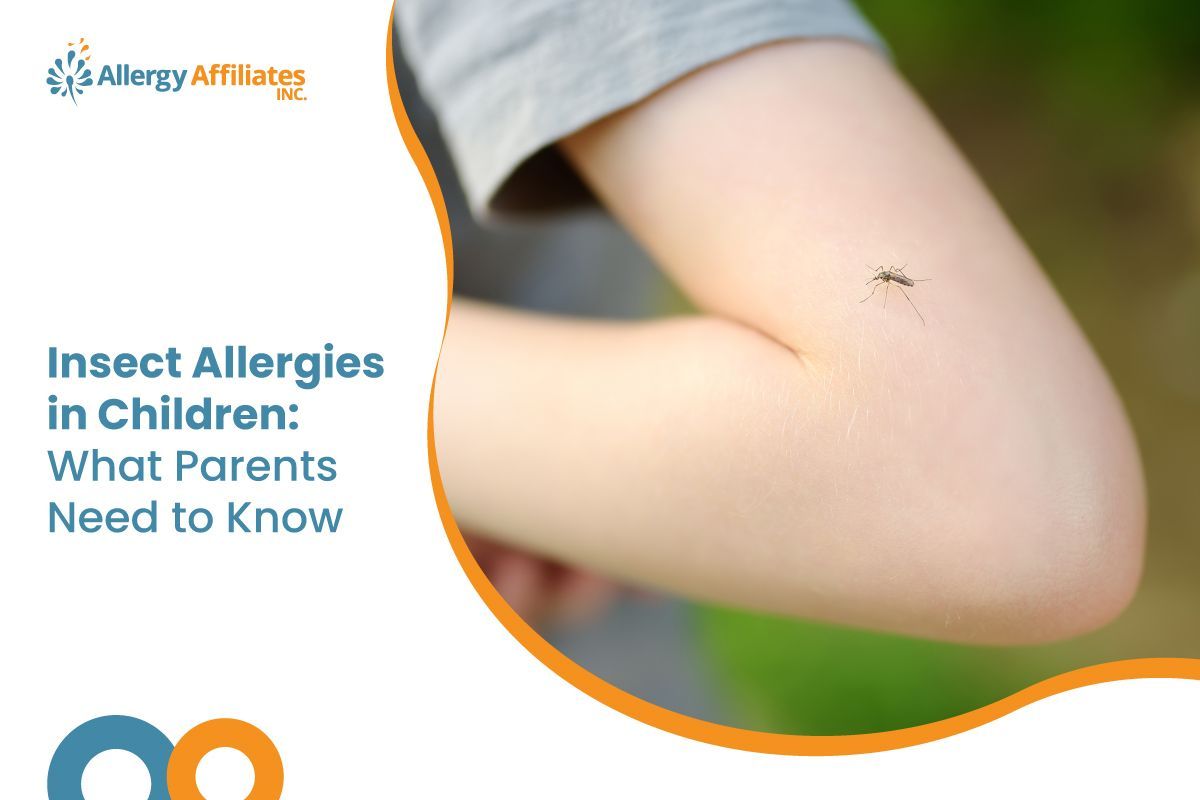
Keeping your children safe and healthy outdoors brings unique challenges, especially when you have to worry about insect stings. According to The American College of Allergy, Asthma & Immunology (ACAAI), allergic responses to insect toxins occur in 0.4 to 0.8 percent of kids and 3 percent of grown-ups. When your kids are susceptible to insect allergies or have already experienced the frightening consequences of insect stings, we know that every buzzing bee and droning wasp feels like a threat. Insect allergies, particularly those related to bee stings and wasp bites, are a topic close to the hearts of many parents.
This article will explore the best practices to protect your child from insect allergies and bee sting reactions. You will also learn about the type of insects that sting children, how to recognize insect allergy signs, and how to respond effectively if the unthinkable happens.
Understanding the World of Insect Allergies
Insect allergies, often called insect stings, occur when a person's immune system reacts unusually to the venom of insects like bees, wasps, and hornets. While most insect stings exhibit mild discomfort, they lead to severe allergic reactions in some children.
Buzzing Threats: Common Insects and the Allergies They Cause in Children
Practice extreme caution around the following insects if your child has a history of being allergic to insect stings.
1. Honey Bees
Honey bees are vital pollinators for many plants and crops. They are typically non-aggressive unless provoked or defended by their hive. Honey bee sting allergic reactions can cause discomfort in susceptible children.
2. Fire Ants
In addition to their aggressive nature, fire ants have painful stings. Some people will develop an insect sting allergy from fire ants. Their colonies can be found in mounds, and disturbing these mounds can lead to hostile attacks.
3. Hornets
Hornets are more prominent than other stinging insects and can be aggressive when defending their nests. Their stings can be excruciatingly painful and cause severe allergic reactions in some individuals. Hornets, especially European ones, are deadly to people who are allergic to stings from bees and wasps.
4. Yellow Jackets
Yellow jackets are aggressive wasps known for their distinctive black and yellow markings. They build nests in various locations, including underground, and their stings can trigger severe allergic responses.
5. Harvester Ants
Harvester ants are ground-dwelling and are known for their aggressive nature and powerful stings. Their stings can result in painful, localized reactions and, in some cases, allergic responses.
6. Paper Wasps
Paper wasps construct distinctive umbrella-shaped nests from paper-like materials.
When threatened, they can deliver painful stings; some may develop allergic reactions.
7. Bumblebees
Bumblebees are essential pollinators for specific crops and wildflowers. Their stings can be painful and may lead to localized swelling and discomfort. Bumblebee stings also lead to allergic reactions, especially in those with other insect allergies.
8. Asian Giant Hornets (Vespa Mandarinia)
The Asian giant hornet is one of the planet's largest wasp species. They have a powerful and painful sting that causes severe allergic reactions. These hornets are also commonly called murder hornets online and in the media.
Educating your kids about these insects and helping them understand the importance of avoiding provocation or
disturbing insect nests minimizes the risk of stings and possible allergic reactions.
Vital Signs of Insect Allergic Reactions in Children
Knowing how to spot the signs of an allergic reaction in your child is crucial for their safety. Here are the physical characteristics that help you recognize an insect sting allergy and the recommended ways to address them.
- Swelling Beyond the Sting Site: Look for swelling that extends beyond the area where the insect stung your child. This widespread swelling is a sign of a more severe allergic reaction. Wash the area with soap and water to remove germs, then apply ice to remove any bumps.
- Hives or Rash: Raised, itchy red bumps (hives) or a rash on your child's skin show an allergic response.
- Difficulty Breathing: Shortness of breath or wheezing indicates severe allergy reaction.
- Facial Swelling: If your child's face starts to swell, especially around the eyes, lips, or throat, it's a red flag for anaphylaxis.
- Nausea and Vomiting: Persistent nausea and vomiting after an insect sting demonstrates an allergy.
- Dizziness or Fainting: Feeling lightheaded, dizzy, or fainting because of a sudden drop in blood pressure is an alarming symptom of anaphylaxis. Call 911 or your local emergency number if someone faints or appears to collapse after an insect sting.
- Loss of Consciousness: If your child loses consciousness, immediate medical treatment and a dosage of epinephrine (adrenaline), often given via auto-injector, are necessary. This is an emergency situation that requires calling 911 immediately.
If you observe any of these signs after an insect sting, don't hesitate—to seek immediate medical help. Your quick response makes all the difference in ensuring your child's well-being.
Protecting Your Child From Insect Allergies
Prevention is your greatest ally against insect allergies. Here are some proactive steps to protect your child:
A. Allergy Testing
Consult an allergist for comprehensive testing to identify the precise allergens and develop a personalized allergy action plan for your child.
B. Avoid Sweet Scents
Sweetened snacks and scented lotions attract stinging insects. Encourage your child to skip these when playing outside.
C. Dress Appropriately
Clothe your child in light-colored, long-sleeved clothing when spending time outdoors. Bright colors and floral patterns attract insects.
D. Comply With Food and Beverage Etiquette
Ensure your child covers food and drinks outside to prevent attracting insects. When dining outdoors, keep food covered to prevent insects from entering the containers and swarming your area.
E. Take Venom Immunotherapy (VIT)
VIT is an effective method for preventing allergic reactions to insect stings in at-risk individuals, but it does not suit everyone. Those who have had life-threatening reactions to insect stings should discuss the possibility of undergoing VIT with a medical professional. Only trained medical professionals, usually allergists or immunologists, should administer this.
F. Carry an Epinephrine Auto-Injector
If your child has a known insect allergy, always have prescribed Epinephrine auto-injectors on hand and ensure you and your child learn how to use them.
Read More:
Managing Childhood Allergies: Causes, Symptoms, and Treatments
Frequently Asked Questions (FAQs) About Insect Allergies in Children
How quickly does an insect allergy appear after the sting?
Answer: An allergic response to an insect sting results immediately, within minutes, or even hours after the sting (although never more than 24 hours). Indications of such a reaction include hives, itchiness, difficulty breathing, swelling in areas other than the sting site, dizziness or an immediate drop in blood pressure, cramps or diarrhea, nausea, unconsciousness, and cardiac arrest.
What are the risks of allergen-specific immunotherapy?
Answer: Most people's skin gets red and swollen when injected. But this response goes away as the treatment advances. Applying steroid creams or gels to the skin area susceptible to allergy-related inflammation or itching can help alleviate these side effects.
Moreover, people who get immunotherapy for bee sting allergies are more likely to have
anaphylactic reactions. About 14 out of 100 people with bee sting allergies have anaphylactic responses. In comparison, only 3 out of 100 people with wasp sting allergies do.
Read:
What to Expect During Immunotherapy for Insect Stings
Speaking Up for Children With Insect Allergies
Insect allergies in children, particularly those triggered by bee stings and wasp bites, are daunting for parents. However, being informed and proactive makes a big difference. While you need to keep your child safe from stings and bites, having an anti-allergy plan is just as important.
Looking to prevent insect allergies in your children? Search for "insect allergy Florida clinic" and "wasp bites allergists" to find Allergy Affiliates. Helping parents like you cope with insect allergies is our passion, and we'd love to help you in any way we can. Feel free to see us, and we will plan a tailor-made approach to your kid's allergies. Call (941) 792-4151 to schedule a consultation or click
here.

